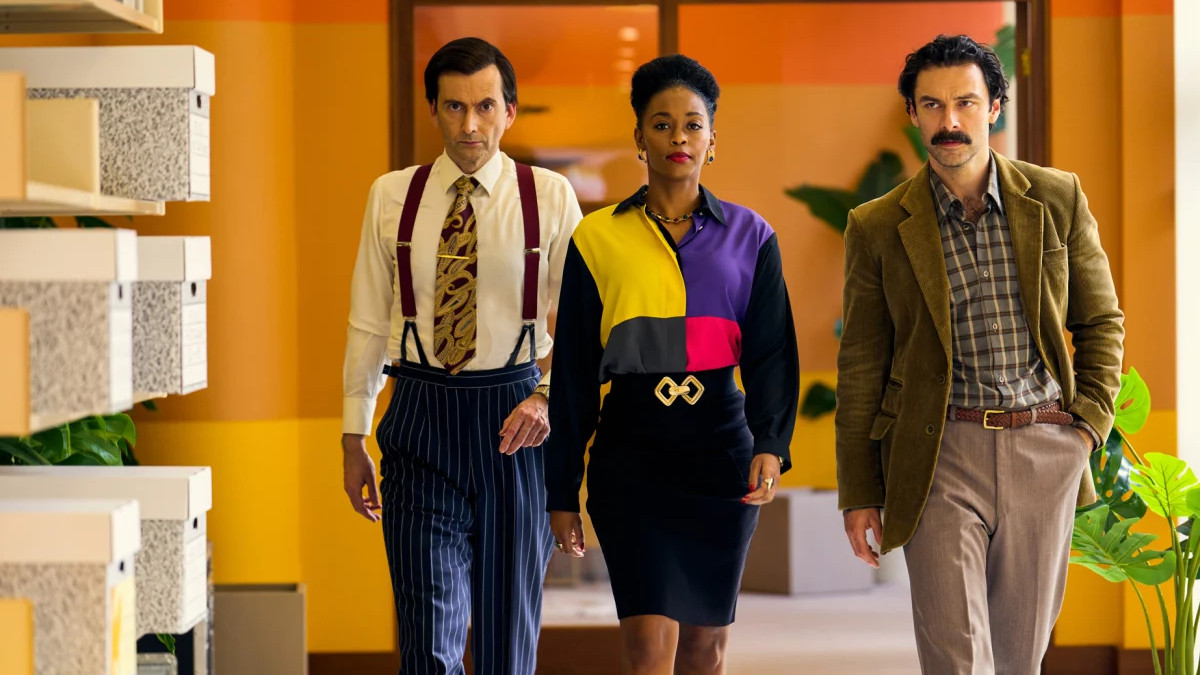These British TV shows prove why messy characters are the best characters

I’ve just finished watching Rivals. I know, I know, I’m a bit late to the party—after all, it did premiere an entire month ago, so how could I have only gotten around to it now, in this age of streaming? It doesn’t matter. I just finished it, and I loved it. This show is filled to the brim with the messiest, cringiest, smarmiest, saddest, funniest, and most bonkers characters around, and it’s absolutely bloody fantastic.
What makes a good character? A solid goal, a chance to grow, interesting relationships, a distinctive personality, and a few personal issues thrown in here and there too. The characters in Rivals have all of this in spades, and I’d personally like to thank Dame Jilly Cooper, who wrote the original Rutshire Chronicles books, and Dominic Treadwell-Collins for taking the first steps to create this adaptation because it’s an absolute joy.
In an age where an increasing number of people on social media are questioning if a person can consider themselves “morally righteous” if they like, write, or relate to a villainous character with some amount of empathy (the answer is yes, by the way), watching a show that utterly embraces the darkest, sloppiest, most unhinged characters lovingly and unapologetically is incredibly refreshing. What makes this series even better is that while the men may be the real titular rivals—specifically David Tennant’s Tony Baddingham, Aidan Turner’s Declan O’Hara, and Alex Hassell’s Rupert Campbell Black—the women are so much more than canon fodder in their petty yet incredibly compelling TV squabbles.
The women are just as messy, if not even more so—they sleep around, they cheat, they drink, they fight, they lie, and they scheme, but they’re also incredibly vulnerable, relatable, and beautifully nuanced. Even Rivals’ most innocent main characters, Taggie O’Hara (Bella Maclean) and Lizzie Vereker (Katherine Parkinson) struggle with controlling their emotional and physical desires. They want to be free of the ethics and insecurities holding them back from going after what they truly want. Married romance writer Lizzie is lusting after Danny Dyers’ equally married tech magnate Freddie Jones, while 20-year-old Taggie can’t help but feel drawn to Rupert, a man twice her age who’s in league with her TV presenter father.
Of course, one can’t forget Nafessa Williams’ Cameron Cook, a no-nonsense, ball-busting, quick-witted, gorgeous, career-driven, and undeniably talented TV producer. As an American Black woman surrounded by British white middle- and upper-class snobs in the 1980s English countryside, Cook is unafraid to showcase her skills and the drive that got her to where she is today. She’s pushy, controlling, and unafraid to be violent (that cliffhanger!) but oddly trusting, too, even when she shouldn’t be. She loves hard, even to her detriment, but she can switch off her affection whenever necessary. She’s the best kind of contradiction there is.
Rivals and Cheaters are cut from the same cloth

Even more recently than Rivals, the BBC released season 2 of Cheaters, a romantic comedy-drama built around 10-minute episodes that chronicles the love—and more importantly sex—lives of late 20-somethings in gentrified London. Now, you might ask yourself, “I’ve seen that show before, haven’t I?” But what sets Cheaters apart from the rest (and what makes it comparable to Rivals) is that almost every character in this show is a cheating, lying, desperate mess, yet most of them are still undeniably likable.
Beneath their ethically questionable adulterous exteriors, these characters feel incredibly real. They’re human, they make mistakes, they’re funny, and they’ll make you wince with embarrassment, but for the most part, they realize that what they’re doing is wrong. You’re rooting for them to learn and grow from these experiences while also recognizing that kind of growth takes time. You don’t have to condone or condemn cheating to be intrigued by them.
Messy characters are the most compelling because they can show us a side of the human experience we may never experience ourselves. We’re rooting for them to adapt and improve. Since all characters must change and grow (remaining stagnant is not an option in storytelling), why not give them a deliciously low point to start from?
Have a tip we should know? [email protected]
